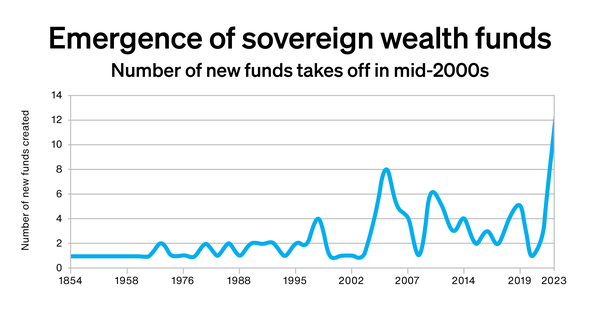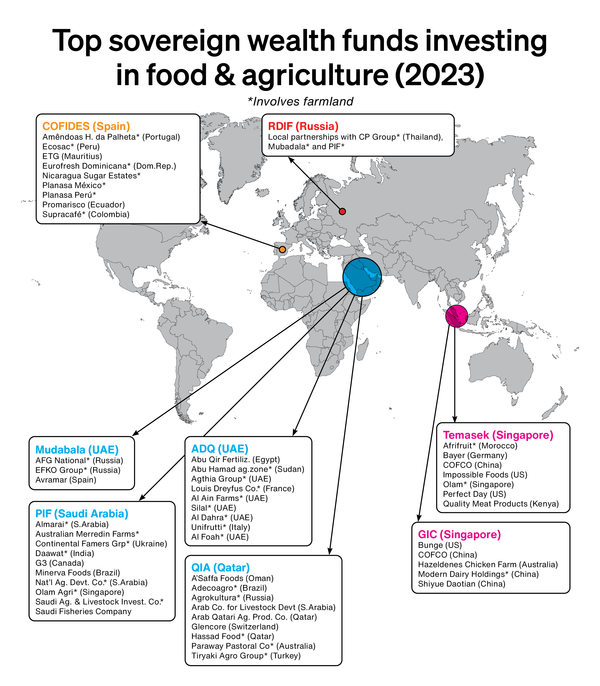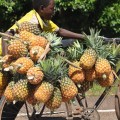SPECIAL REPORTS AND PROJECTS
‘A shame for the world’: Uganda’s fragile forest ecosystem destroyed for sugar
Published
4 years agoon

Bugoma reserve is being deforested to pave way for sugarcane. Photograph: Handout/The Guardian
Conservationists say clearance of Bugamo reserve for plantation is blow to biodiversity and country’s reputation on wildlife.
Conservationists have branded a decision by the Ugandan high court to allow swathes of forest to be cleared for a sugarcane plantation “an unforgivable shame for all people”.
Work to clear 900 hectares (2,223 acres) of Bugoma Forest Reserve, in Hoima, began last month after the court ruled that the land, leased by Hoima Sugar Company Ltd, lay outside the protected area of the forest. The court ordered the National Forestry Authority (NFA), which manages it, to vacate the land and remove the military officers who had been guarding it. The NFA has appealed the decision.
The land was leased to Hoima Sugar, which has a 70% shareholding in Kinyara Sugar Works in neighbouring Masindi district, in 2016 for 99 years by Solomon Iguru Gafabusa, king of the ancient kingdom of Bunyoro-Kitara. He said the leased area was ancestral land and not part of the protected forest.
Rajasekaran Ramadoss, agriculture manager at Hoima Sugar Company, said the proposed sugarcane plantation would “improve the standard of living of those people” in the area.
In the environmental and social impact assessment report submitted with its application for a sugar plantation, the company said it would also build schools and a hospital, develop an ecotourism project that comprised an eco-lodge, walking trails and a campsite, and replant the degraded area.
But Costantino Tessarin, chairperson of Association for the Conservation of Bugoma Forest, said: “Whether the land falls inside the boundaries of the gazetted reserve or not … is a merely sterile exercise for primary school students.
“Because the reality is that we are talking about [an] ecosystem of international importance that cannot be discussed in parts and pieces,” he said. The decision to go ahead with clearing the forest was “an unforgivable shame for all people of common sense, not only in Uganda but in the world”.
Conservation groups and forestry experts have long warned that destroying even just a part of the forest’s diversity would lead to a loss of fauna and flora, and affect the water levels of the River Nile.
“We consider this plan not only detrimental to the Ugandan government plans to develop and invest in tourism in Bugoma Forest, but to the overall fragile and rich ecosystem [which] will simply be irreparably compromised,” said Tessarin, who is also director of Uganda Jungle Lodges and owner of Bugoma Jungle Lodge.
Onesmus Mugyenyi, coordinator of the Forest Governance Learning Group, an informal alliance of 10 African and Asian states that advocate for the protection of forests, said investors in ecotourism and conservation “have much to complain about and need the protection of their investment”.
“Moreover, the development of ecotourism activities will have a broader impact on the livelihood of the people in the area.”
The reserve, which covers 41,144 hectares, is the largest remaining block of natural tropical forest along the Albertine Rift Valley and adjacent to Budongo Forest and Semuliki National Park. It plays an enormous role in preserving wildlife migratory corridors.
It is home to 23 species of animals, including an estimated 550 highly endangered chimpanzees, Ugandan mangabeys (an endemic primate), 225 species of birds and 260 species of trees.
According to the survey by the ministry of tourism and antiquities in 2019, Bugoma, which lies about 250km north-west of the capital, Kampala, is due to have its status upgraded from a reserve to a national park, which would put it under the management of the Uganda Wildlife Authority.
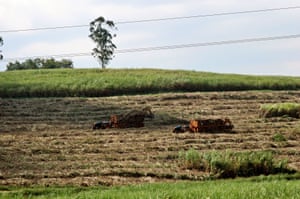
“Sugarcane is not only environmentally unfriendly in general, but in particular when it becomes the buffer zone of a tropical rainforest,” said Tessarin.
He said sugarcane was not the best crop to use as a buffer zone around a protected area because it doesn’t mix well with wildlife. “There are crops and landscapes which are more appropriate in buffer zones areas where there are chimpanzees and … almost 10 species of primates, plus other wildlife,” he said.
Forest have shrunk from 24% of Uganda’s total land area in 1990 to 9% in 2015, because of land disputes and deforestation, according to State of Uganda’s Forestry report.
“To throw away Bugoma would be to throw away rain, biodiversity,” said Cathy Watson, head of programme development at World Agroforestry. “It would also be to throw away Uganda’s reputation on the climate, forest and wildlife front.”
Conservationists have launched a social media campaign, “Save Bugoma Forest”, and are petitioning President Yoweri Museveni to intervene.
“It is necessary that the government of Uganda and the national institutions intervene to resolve a matter that cannot be just a legal battle in court and cannot be only about boundaries of proposed land titles,” said Tessarin.
Original Post: The Guardian
Related posts:
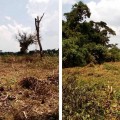
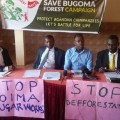 Hoima Sugar loses 13 sq miles as NEMA toughens on Bugoma land takeover
Hoima Sugar loses 13 sq miles as NEMA toughens on Bugoma land takeover
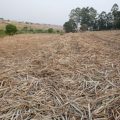 Campaigners lose court case to stop Ugandan forest clearance
Campaigners lose court case to stop Ugandan forest clearance
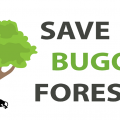 Bugoma forest under threat again as more 2000Ha is dished to investors
Bugoma forest under threat again as more 2000Ha is dished to investors
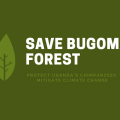 Why Uganda, the World should protect Bugoma forest at all costs
Why Uganda, the World should protect Bugoma forest at all costs
You may like
DEFENDING LAND AND ENVIRONMENTAL RIGHTS
Statement: The Energy Sector Strategy 2024–2028 Must Mark the End of the EBRD’s Support to Fossil Fuels
Published
1 year agoon
September 27, 2023
The European Bank for Reconstruction and Development (EBRD) is due to publish a new Energy Sector Strategy before the end of 2023. A total of 130 civil society organizations from over 40 countries have released a statement calling on the EBRD to end finance for all fossil fuels, including gas.
From 2018 to 2021, the EBRD invested EUR 2.9 billion in the fossil energy sector, with the majority of this support going to gas. This makes it the third biggest funder of fossil fuels among all multilateral development banks, behind the World Bank Group and the Islamic Development Bank.
The EBRD has already excluded coal and upstream oil and gas fields from its financing. The draft Energy Sector Strategy further excludes oil transportation and oil-fired electricity generation. However, the draft strategy would continue to allow some investment in new fossil gas pipelines and other transportation infrastructure, as well as gas power generation and heating.
In the statement, the civil society organizations point out that any new support to gas risks locking in outdated energy infrastructure in places that need investments in clean energy the most. At the same time, they highlight, ending support to fossil gas is necessary, not only for climate security, but also for ensuring energy security, since continued investment in gas exposes countries of operation to high and volatile energy prices that can have a severe impact on their ability to reach development targets. Moreover, they underscore that supporting new gas transportation infrastructure is not a solution to the current energy crisis, given that new infrastructure would not come online for several years, well after the crisis has passed.
The signatories of the statement call on the EBRD to amend the Energy Sector Strategy to
- fully exclude new investments in midstream and downstream gas projects;
- avoid loopholes involving the use of unproven or uneconomic technologies, as well as aspirational but meaningless mitigation measures such as “CCS-readiness”; and
- strengthen the requirements for financial intermediaries where the intended nature of the sub-transactions is not known to exclude fossil fuel finance across the entire value chain.
Source: iisd.org
Download the statement: https://www.iisd.org/system/files/2023-09/ngo-statement-on-energy-sector-strategy-2024-2028.pdf
Related posts:
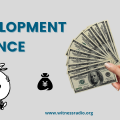
 Breaking: over 350,000 acres of land were grabbed during Witness Radio – Uganda’s seven months ban.
Breaking: over 350,000 acres of land were grabbed during Witness Radio – Uganda’s seven months ban.
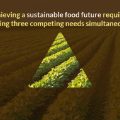 EBRD launches new agribusiness strategy
EBRD launches new agribusiness strategy
 30 civil society organizations have written to the World Bank Group demanding to publicly disclose the Africa Energy Approach paper.
30 civil society organizations have written to the World Bank Group demanding to publicly disclose the Africa Energy Approach paper.
 Over 600 million Africans lack electricity despite huge renewable energy potential
Over 600 million Africans lack electricity despite huge renewable energy potential
SPECIAL REPORTS AND PROJECTS
Will more sovereign wealth funds mean less food sovereignty?
Published
2 years agoon
April 13, 2023
- 45% of Louis Dreyfus Company, with its massive land holdings in Latin America, growing sugarcane, citrus, rice and coffee;
- a majority stake in Unifrutti, with 15,000 ha of fruit farms in Chile, Ecuador, Argentina, Philippines, Spain, Italy and South Africa; and
- Al Dahra, a large agribusiness conglomerate controlling and cultivating 118,315 ha of farmland in Romania, Spain, Serbia, Morocco, Egypt, Namibia and the US.
|
Sovereign wealth funds invested in farmland/food/agriculture (2023)
|
|||
|
Country
|
Fund
|
Est.
|
AUM (US$bn)
|
|
China
|
CIC
|
2007
|
1351
|
|
Norway
|
NBIM
|
1997
|
1145
|
|
UAE – Abu Dhabi
|
ADIA
|
1967
|
993
|
|
Kuwait
|
KIA
|
1953
|
769
|
|
Saudi Arabia
|
PIF
|
1971
|
620
|
|
China
|
NSSF
|
2000
|
474
|
|
Qatar
|
QIA
|
2005
|
450
|
|
UAE – Dubai
|
ICD
|
2006
|
300
|
|
Singapore
|
Temasek
|
1974
|
298
|
|
UAE – Abu Dhabi
|
Mubadala
|
2002
|
284
|
|
UAE – Abu Dhabi
|
ADQ
|
2018
|
157
|
|
Australia
|
Future Fund
|
2006
|
157
|
|
Iran
|
NDFI
|
2011
|
139
|
|
UAE
|
EIA
|
2007
|
91
|
|
USA – AK
|
Alaska PFC
|
1976
|
73
|
|
Australia – QLD
|
QIC
|
1991
|
67
|
|
USA – TX
|
UTIMCO
|
1876
|
64
|
|
USA – TX
|
Texas PSF
|
1854
|
56
|
|
Brunei
|
BIA
|
1983
|
55
|
|
France
|
Bpifrance
|
2008
|
50
|
|
UAE – Dubai
|
Dubai World
|
2005
|
42
|
|
Oman
|
OIA
|
2020
|
42
|
|
USA – NM
|
New Mexico SIC
|
1958
|
37
|
|
Malaysia
|
Khazanah
|
1993
|
31
|
|
Russia
|
RDIF
|
2011
|
28
|
|
Turkey
|
TVF
|
2017
|
22
|
|
Bahrain
|
Mumtalakat
|
2006
|
19
|
|
Ireland
|
ISIF
|
2014
|
16
|
|
Canada – SK
|
SK CIC
|
1947
|
16
|
|
Italy
|
CDP Equity
|
2011
|
13
|
|
China
|
CADF
|
2007
|
10
|
|
Indonesia
|
INA
|
2020
|
6
|
|
India
|
NIIF
|
2015
|
4
|
|
Spain
|
COFIDES
|
1988
|
4
|
|
Nigeria
|
NSIA
|
2011
|
3
|
|
Angola
|
FSDEA
|
2012
|
3
|
|
Egypt
|
TSFE
|
2018
|
2
|
|
Vietnam
|
SCIC
|
2006
|
2
|
|
Gabon
|
FGIS
|
2012
|
2
|
|
Morocco
|
Ithmar Capital
|
2011
|
2
|
|
Palestine
|
PIF
|
2003
|
1
|
|
Bolivia
|
FINPRO
|
2015
|
0,4
|
|
AUM (assets under management) figures from Global SWF, January 2023
|
|||
|
Engagement in food/farmland/agriculture assessed by GRAIN
|
|||
Related posts:
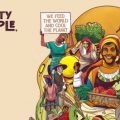
 La Via Campesina calls on States to exit the WTO and to create a new framework based on food sovereignty
La Via Campesina calls on States to exit the WTO and to create a new framework based on food sovereignty
 The United Nations Food Systems Summit is a corporate food summit —not a “people’s” food summit
The United Nations Food Systems Summit is a corporate food summit —not a “people’s” food summit
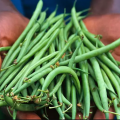 Food Sovereignty: A Manifesto for the Future of Our Planet
Food Sovereignty: A Manifesto for the Future of Our Planet
 CORPORATE AGRIBUSINESS GIANTS SWIM IN WEALTH AS MORE POOR PEOPLE GO HUNGRY AMID THE BITING COVID PANDEMIC.
CORPORATE AGRIBUSINESS GIANTS SWIM IN WEALTH AS MORE POOR PEOPLE GO HUNGRY AMID THE BITING COVID PANDEMIC.
SPECIAL REPORTS AND PROJECTS
Farmland values hit record highs, pricing out farmers
Published
2 years agoon
November 21, 2022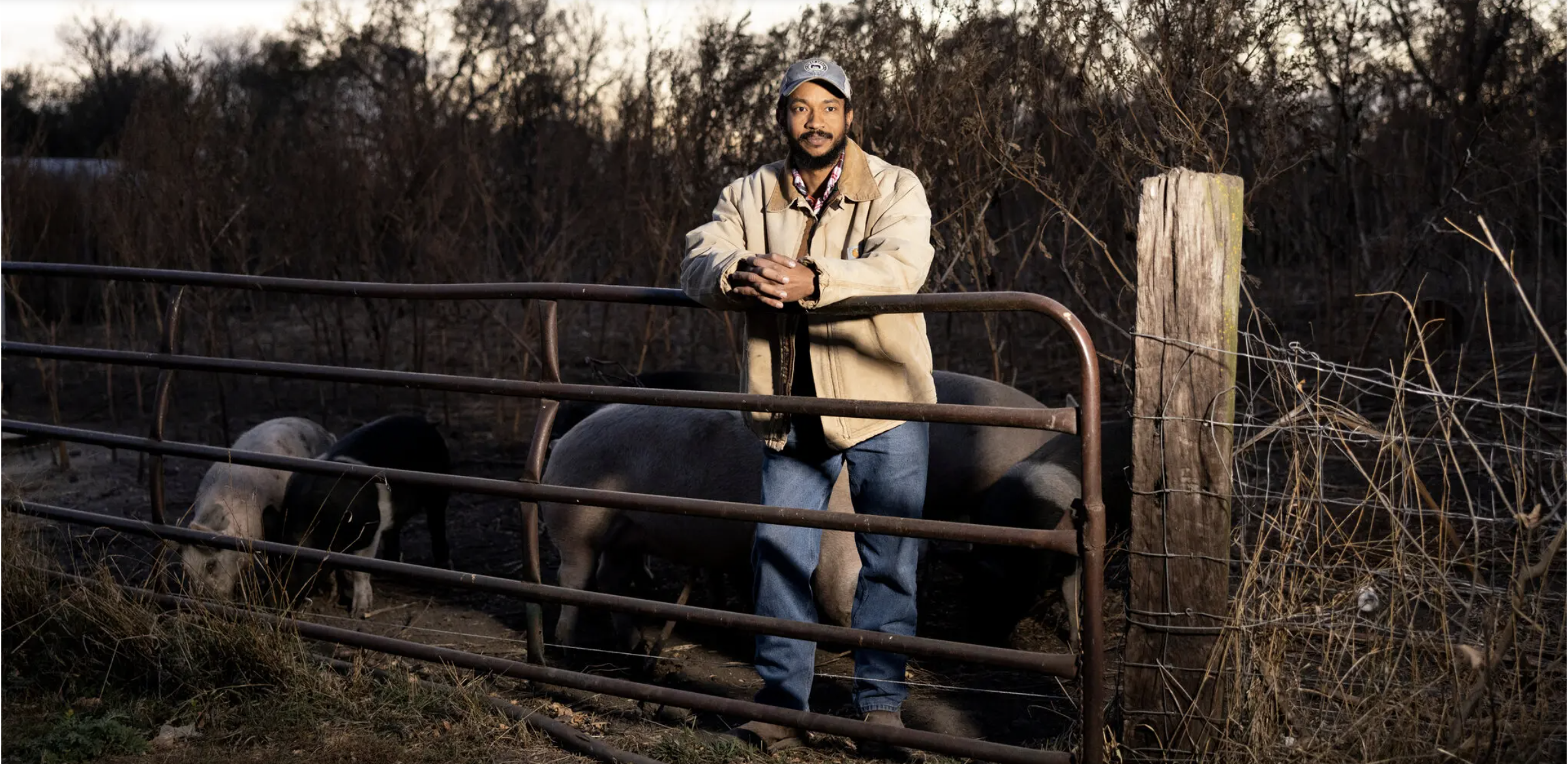

African Women forge bold actions for climate justice at the 2024 Women’s Climate Assembly in Senegal.

Women’s Climate Assembly, 2024: African women vow to protect human and environmental rights amidst an influx of destructive land-based investments on the continent.

UN approves carbon market safeguards to protect environment and human rights

Breaking: West and Central African women meet in Senegal over the climate crisis.

Industrial plantations: stop endangering local farmers, Indigenous knowledge, and food system models – land-grab victims

EACOP: Another community of 80 households has lost its land to the government and Total Energies to construct an oil pipeline.

Breaking: West and Central African women meet in Senegal over the climate crisis.

Carbon offset projects exacerbate land grabbing and undermine small farmers’ independence – GRAIN report

Innovative Finance from Canada projects positive impact on local communities.
Over 5000 Indigenous Communities evicted in Kiryandongo District
Petition To Land Inquiry Commission Over Human Rights In Kiryandongo District
Invisible victims of Uganda Land Grabs
Resource Center
- LAND GRABS AT GUNPOINT REPORT IN KIRYANDONGO DISTRICT
- FROM LAND GRABBERS TO CARBON COWBOYS A NEW SCRAMBLE FOR COMMUNITY LANDS TAKES OFF
- African Faith Leaders Demand Reparations From The Gates Foundation.
- GUNS, MONEY AND POWER GRABBED OVER 1,975,834 HECTARES OF LAND; BROKE FAMILIES IN MUBENDE DISTRICT.
- THE SITUATION OF PLANET, ENVIRONMENTAL AND LAND RIGHTS DEFENDERS IS FURTHER DETERIORATING IN UGANDA AS 2023 WITNESSED A RECORD OF OVER 180 ATTACKS.
- A CASE STUDY REPORT ON THE CHALLENGES OF ACCESSING JUSTICE BY VICTIMS OF LAND GRABBING DURING COVID-19 PANDEMIC AND THE IMPACT ON DISPLACED COMMUNITIES IN UGANDA
- MEDIA STATEMENT ON THE PRESIDENT’S DIRECTIVE STOPPING ILLEGAL EVICTIONS
- LAND RIGHTS AS A PATHWAY OUT OF THE CLIMATE CRISIS
Legal Framework
READ BY CATEGORY
Newsletter
Trending
-

 MEDIA FOR CHANGE NETWORK2 weeks ago
MEDIA FOR CHANGE NETWORK2 weeks agoBreaking: West and Central African women meet in Senegal over the climate crisis.
-
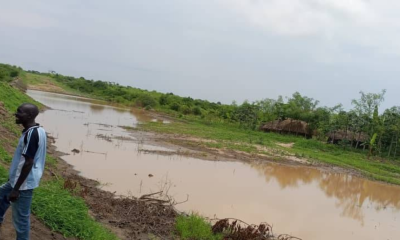
 MEDIA FOR CHANGE NETWORK2 weeks ago
MEDIA FOR CHANGE NETWORK2 weeks agoTotal Energies’ oil exploration activities are displacing dozens of families due to flooding.
-
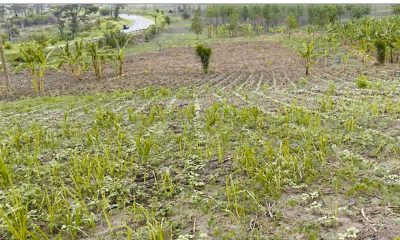
 FARM NEWS2 weeks ago
FARM NEWS2 weeks agoDrought ruining Kasese farmers’ livelihoods
-
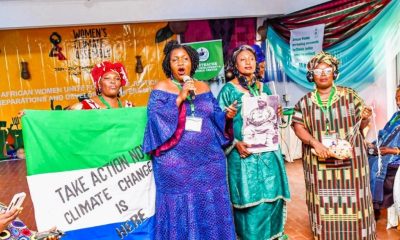
 MEDIA FOR CHANGE NETWORK1 week ago
MEDIA FOR CHANGE NETWORK1 week agoWomen’s Climate Assembly, 2024: African women vow to protect human and environmental rights amidst an influx of destructive land-based investments on the continent.
-
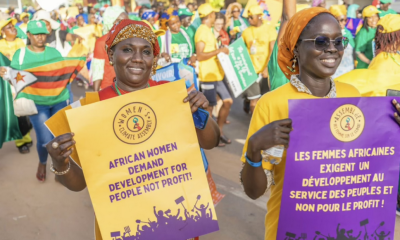
 MEDIA FOR CHANGE NETWORK5 days ago
MEDIA FOR CHANGE NETWORK5 days agoAfrican Women forge bold actions for climate justice at the 2024 Women’s Climate Assembly in Senegal.
-
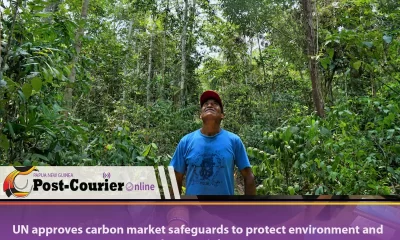
 MEDIA FOR CHANGE NETWORK1 week ago
MEDIA FOR CHANGE NETWORK1 week agoUN approves carbon market safeguards to protect environment and human rights

